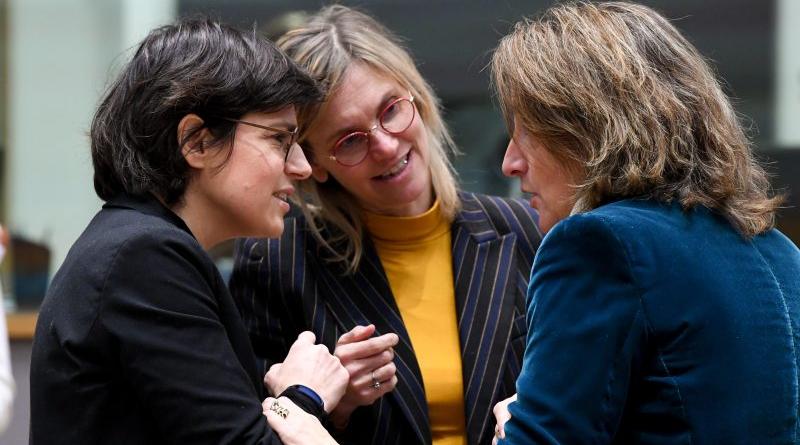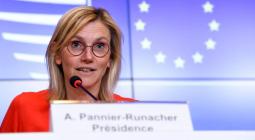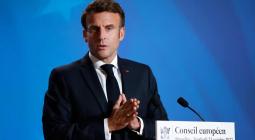France to join ‘renewables friendly’ group of EU countries

France will take part in the next gathering of the “renewables friendly” group of countries, the Minister for Energy Transition, Agnès Pannier-Runacher, said at a meeting of the “nuclear alliance” on Tuesday (16 May), indicating the readiness of Paris to embrace both options.
Read the original French article here.
The “renewables friendly” group of EU countries met for the first time on 28 March at the initiative of Austrian Energy Minister Leonore Gewessler.
The group of pro-renewable countries was launched in response to the “nuclear alliance” brought together on the same day by France, on the sidelines of a meeting of the EU’s Energy Council in Brussels.
On Tuesday morning (16 May), Pannier-Runacher convened, for the third time, representatives of pro-nuclear European states for a meeting in Paris. The group, meanwhile, has grown from 11 countries to 16.
While the nuclear alliance meeting in Paris concluded with a joint declaration announcing the development of 150 GW of installed nuclear capacity in the EU by 2050, Pannier-Runacher also had a word for renewables.
Speaking at a press conference, Pannier-Runacher announced that France “will indeed attend the next meeting” of the “renewable friendly” group.
“I have asked to be part of the alliance of pro-renewable countries, since [France has] exactly the same amount of renewables in [its] energy mix as Germany,” she explained. France and Germany reached a share of about 19% of renewables in their gross final energy consumption in 2021.
For several months now, the minister has been repeating that France is counting on both the redevelopment of its nuclear park and the rapid deployment of renewable energies, a move that was enacted in mid-March with the adoption of a “renewable acceleration law”.
With this law, France set itself the goal of achieving 100 GW of solar power and 40 GW of offshore wind power by 2040 – equal to the country’s total installed power capacity in 2022.
“This is one of the key elements of our energy policy,” stressed Pannier-Runacher, who insisted that “we [the French government] are not opposing nuclear and renewable energy”.
In contrast, Austria’s Gewessler did not hide her aversion to nuclear power ahead of the first meeting of the “renewable friendly” group. The Austrian minister said she was “ready to fight” to prevent nuclear from being recognised on an equal footing with renewables.
In Brussels at the end of March, Gewessler brought together her counterparts from Spain, Germany, Denmark, Ireland, Luxembourg, Portugal, Latvia, Lithuania, and Estonia.
Ministers from the Netherlands and Belgium were also present as “observers”. Like France, Estonia, also took part in the “nuclear alliance” meeting on Tuesday.
The date of the next meeting of the “renewable friendly” group is not yet known while the next meeting of the “nuclear alliance” could be held on the sidelines of the next EU Energy Council in Luxembourg on 19 June.
cover photo:Tinne van der Straeten (Minister for Energy, Belgium), Agnès Pannier-Runacher (Minister for Energy Transition, France), Teresa Ribera Rodriguez (Third Deputy Prime Minister and Minister for Ecological Transition and the Demographic Challenge, Spain). [Conseil de l'Union européenne]






